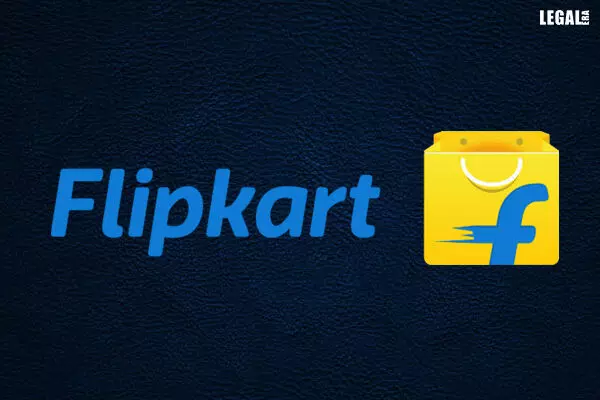- Home
- News
- Articles+
- Aerospace
- AI
- Agriculture
- Alternate Dispute Resolution
- Arbitration & Mediation
- Banking and Finance
- Bankruptcy
- Book Review
- Bribery & Corruption
- Commercial Litigation
- Competition Law
- Conference Reports
- Consumer Products
- Contract
- Corporate Governance
- Corporate Law
- Covid-19
- Cryptocurrency
- Cybersecurity
- Data Protection
- Defence
- Digital Economy
- E-commerce
- Employment Law
- Energy and Natural Resources
- Entertainment and Sports Law
- Environmental Law
- ESG
- FDI
- Food and Beverage
- Gaming
- Health Care
- IBC Diaries
- In Focus
- Inclusion & Diversity
- Insurance Law
- Intellectual Property
- International Law
- IP & Tech Era
- Know the Law
- Labour Laws
- Law & Policy and Regulation
- Litigation
- Litigation Funding
- Manufacturing
- Mergers & Acquisitions
- NFTs
- Privacy
- Private Equity
- Project Finance
- Real Estate
- Risk and Compliance
- Student Corner
- Take On Board
- Tax
- Technology Media and Telecom
- Tributes
- Viewpoint
- Zoom In
- Law Firms
- In-House
- Rankings
- E-Magazine
- Legal Era TV
- Events
- News
- Articles
- Aerospace
- AI
- Agriculture
- Alternate Dispute Resolution
- Arbitration & Mediation
- Banking and Finance
- Bankruptcy
- Book Review
- Bribery & Corruption
- Commercial Litigation
- Competition Law
- Conference Reports
- Consumer Products
- Contract
- Corporate Governance
- Corporate Law
- Covid-19
- Cryptocurrency
- Cybersecurity
- Data Protection
- Defence
- Digital Economy
- E-commerce
- Employment Law
- Energy and Natural Resources
- Entertainment and Sports Law
- Environmental Law
- ESG
- FDI
- Food and Beverage
- Gaming
- Health Care
- IBC Diaries
- In Focus
- Inclusion & Diversity
- Insurance Law
- Intellectual Property
- International Law
- IP & Tech Era
- Know the Law
- Labour Laws
- Law & Policy and Regulation
- Litigation
- Litigation Funding
- Manufacturing
- Mergers & Acquisitions
- NFTs
- Privacy
- Private Equity
- Project Finance
- Real Estate
- Risk and Compliance
- Student Corner
- Take On Board
- Tax
- Technology Media and Telecom
- Tributes
- Viewpoint
- Zoom In
- Law Firms
- In-House
- Rankings
- E-Magazine
- Legal Era TV
- Events
Flipkart's Instakart not subject to Local Body Tax: Bombay High Court

Flipkart's Instakart not subject to Local Body Tax: Bombay High Court
The Bombay High Court by its division bench comprising Justices Sunil Shukre and MW Chandwani in the matter of M/s Instakart Services Private Limited vs. State of Maharashtra ruled that Instakart, which delivers products ordered on Flipkart, cannot be considered an agent, dealer, or importer and the same cannot be subjected to local body tax (in short LBT).
A show-cause notice was issued to Instakart by the Commissioner of Pune Municipal Corporation (in short PMC) directing it to register itself as a 'dealer/importer' so that LBT could be assessed and levied.
In its show-cause notice issued on 3 February, 2017, the civic body had contended that by bringing in goods within PMC jurisdiction, Instakart was earning commission and was, therefore, covered within the ambit of 'a commission agent.
The issue before the High Court was, whether the Petitioner would be an entity which is liable for assessment and levy of LBT?
To answer this, the Court discussed the relevant provisions of the Maharashtra Municipal Corporation (Local Body Tax) Rules, 2015 Section 2(16A) and 2(28A), read with relevant provisions of the Municipal Corporation Act, 1888 which talks about the terms Dealer and Importer.
The Court noted that Instakart brings in goods within the limits of PMC not for its own use or for earning commission or sale, but for the purpose of the goods being delivered at the door step of the individual buyer.
"In other words, what the petitioner is doing here is import of goods for the purpose of delivery to some other person and for this purpose, the petitioner acts like a courier or postman or delivery person. Thus, its activity would not be covered by the definition of the word 'importer'," the bench said in its order.
The Court remarked that if Instakart cannot be considered a person who imports goods into the city limits for use or consumption or sale and if it is also not the person who is alleged to be selling or buying goods for commission or remuneration in the city, it would not be a "dealer" within the contemplation of Section 2(16A) of the LBT rules.
Lastly, the Court concluded by stating, "thus, the petitioner acts like courier or a postman or a delivery person. Therefore, the Petitioner could not be said to be an agent, either of the seller or the buyer much less a commission agent. The Petitioner is also not an auctioneer who imports any goods on behalf of the principle and that is not the case of the corporation either."
All these aspects, which are very critical for the purpose of assessment and levy of LBT were not considered by the Municipal Commissioner, Pune, opined the Court
The Court ruled that the impugned order was illegal and bad-in-law. Such an order cannot be sustained in the eyes of law and deserves to be quashed and set aside.


